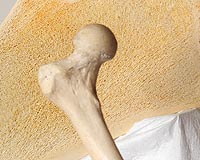 |
Denver CO (SPX) May 18, 2011 A new program developed by researchers at Pennsylvania State College of Medicine and Pennsylvania State University may make it easier for patients with moderate/severe chronic obstructive pulmonary disease (COPD) to make critical decisions regarding their care as their disease worsens. The computer-based decision aid (CDA) is designed to educate patients about planning for end-of-life decisions without diminishing hope, according to the researchers. The results of the study will be presented at the ATS 2011 International Conference in Denver. According to lead author and third-year medical student Joshua Hozella, patients found the CDA was highly accurate at reflecting their wishes for end-of-life medical care and reported high levels of satisfaction using the program. "Despite the high mortality associated with COPD, few patients either engage in end-of-life planning or create an 'advance directive,' the document used by health professionals when patients cannot speak for themselves," said Mr. Hozella. "To overcome various barriers associated with end-of-life planning, a research team led by Drs. Michael Green and Benjamin Levi at Pennsylvania State developed a computer-based decision aid that both helps patients work through key issues in advance care planning and generates an advance directive based on their responses." To conduct their study, Mr. Hozella and fellow researcher Rebecca Bascom, MD, enrolled 20 patients with moderate/severe COPD. Patients completed the CDA independently with in-room technical support available as needed. After completing the activity, patients were asked to evaluate the program with regard to how well the program reflected their desires for end-of-life care, how satisfied they were with the decision aid and how their level of hope changed after using the program. Results of the study indicated patient satisfaction with the CDA was high. Mean satisfaction level on a scale of 1 to 10, with 1 being the lowest, was 8.6. Users also rated the advance directive as highly accurate at reflecting their wishes, with a mean rating of 8.5. Additionally, patients who completed the CDA reported an increased awareness of advance care planning issues and no decrease in their level of hope. Mr. Hozella said the findings were consistent with what Drs. Green and Levi have found in other studies with patients who have advanced cancer, heart disease and amyotrophic lateral sclerosis (Lou Gehrig's disease). "Some physicians resist advance care planning out of concern that addressing these issues will rob patients of much-needed hope, Mr. Hozella said. "There is also concern that advance directive documents are poor representations of patients' values and goals, and hence are often not useful for dealing with complex medical decisions that may arise during end-of-life care. "We've found that a computer-based decision aid can help patients learn about and work through key issues in end-of-life planning, generate an advance directive document that accurately reflects their wishes for end-of-life care, and do so in a way that does not diminish their sense of hope," he said. "This decision aid was designed to address the advance care planning needs of patients, regardless of their medical condition. "The present study shows that patients with COPD are among those who will benefit from the use of this CDA," he added. "These findings should encourage clinicians, patients and patients' families to use our computer-based decision aid to engage in effective advance care planning." As a next step, the research team has proposed a study that would evaluate whether use of the CDA can help decrease the burden of decision-making for family caregivers who are often required to make surrogate decisions when patients can no longer speak for themselves. "Using An Interactive Computer Program To Create An Advanced Directive In Patients With Stage III-IV Chronic Obstructive Pulmonary Disease: A Feasibility Study"
Share This Article With Planet Earth
Related Links American Thoracic Society All About Human Beings and How We Got To Be Here
 New method for engineering human tissue regeneration
New method for engineering human tissue regenerationNew Haven CT (SPX) May 16, 2011 If pending clinical trials prove successful, a new discovery published in The FASEB Journal could represent a major scientific leap toward human tissue regeneration and engineering. In a research report appearing online, Yale scientists provide evidence to support a major paradigm shift in this specialty area from the idea that cells added to a graft before implantation are the building bl ... read more |
|
| The content herein, unless otherwise known to be public domain, are Copyright 1995-2010 - SpaceDaily. AFP and UPI Wire Stories are copyright Agence France-Presse and United Press International. ESA Portal Reports are copyright European Space Agency. All NASA sourced material is public domain. Additional copyrights may apply in whole or part to other bona fide parties. Advertising does not imply endorsement,agreement or approval of any opinions, statements or information provided by SpaceDaily on any Web page published or hosted by SpaceDaily. Privacy Statement |